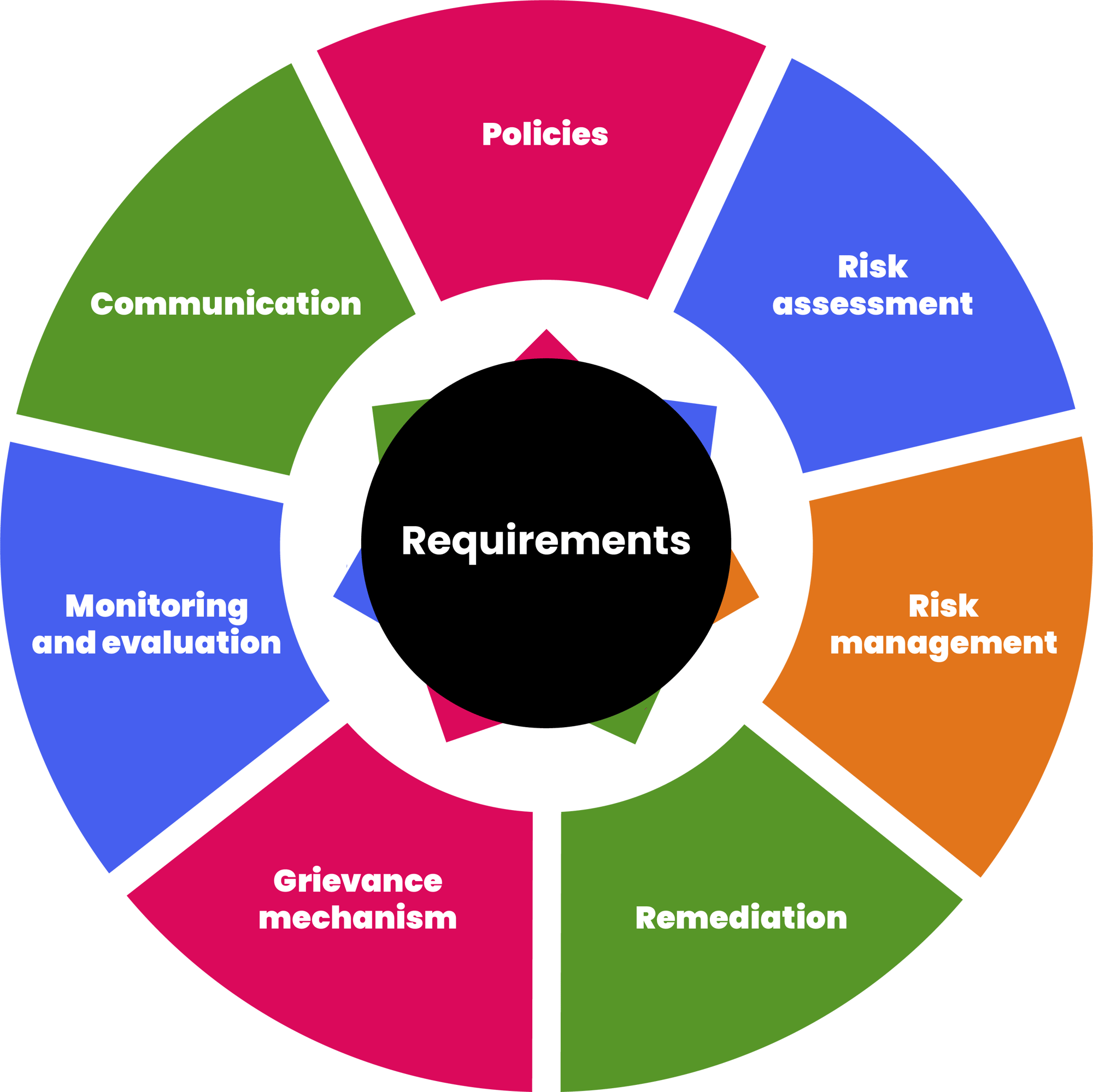The comprehensive guide to understanding the EU Corporate Sustainability Directive and the actionable steps you can take today to prepare your business. The Directive is expected to come into force in 2024.
What is a Directive?
According to the European Union, a Directive is a legislative act that sets out a goal that all EU countries must achieve. However, it is up to the individual countries to devise their laws on how to reach these goals. (i)
What is the EU Directive?
The European Union (EU) published a draft Corporate Sustainability Due Diligence Directive in February 2022, which builds on the United Nations Guiding Principles’ (UNGPs) for businesses to respect human rights and the environment. It establishes a corporate responsibility and due diligence duty across business operations and the supply chain.
Who does the EU Directive apply to?
-
EU companies with more than 500 employees with a global revenue greater than €150 million, or non-EU companies that generated revenue greater than €150 million in the EU market in the last financial year.
-
For companies operating in what is understood as a high-impact sector – EU companies with more than 250 employees with global revenue of more than €40 million, and non-EU companies that generated revenue greater than €40 million in the EU market in the last financial year.

When will the EU Directive apply to businesses?
The application of the Directive will happen in three stages:
In January 2024, for companies already subject to the EU Directive on non-financial reporting;
In January 2025, for companies that are not presently subject to the non-financial reporting Directive;
In January 2026, for listed SMEs, small and non-complex credit institutions (SNCI) and captive insurance undertakings.
What are the requirements of the EU Directive?
The Directive will require companies to conduct due diligence on human rights and environmental-related issues in their operations and supply chains. The key requirements for the EU Directive include:


